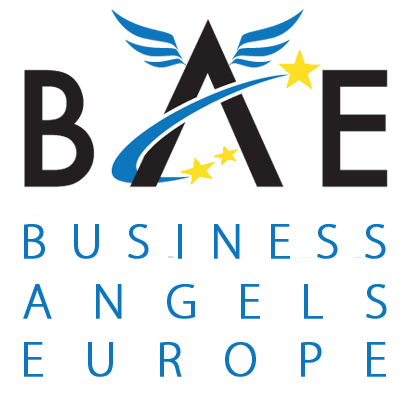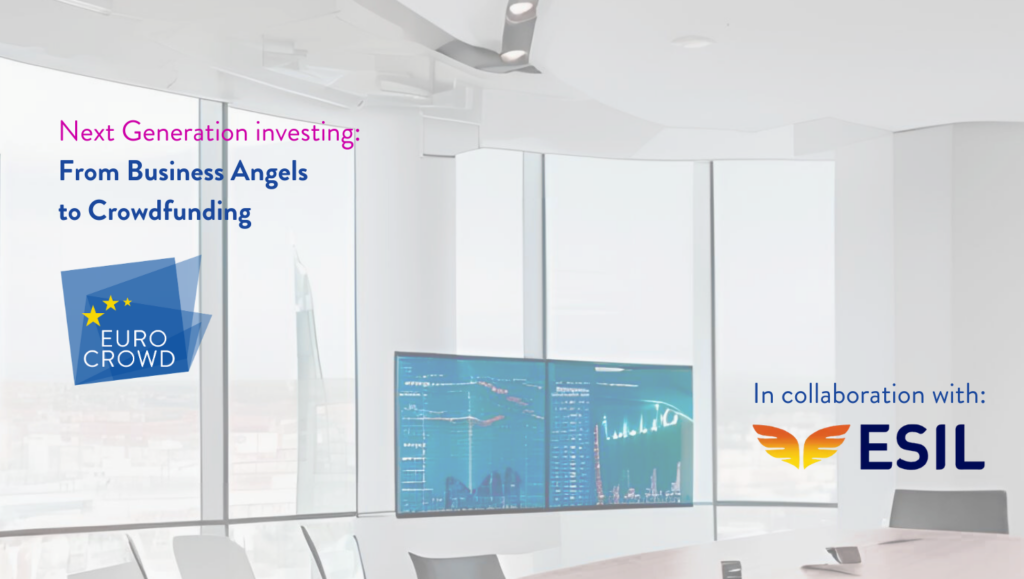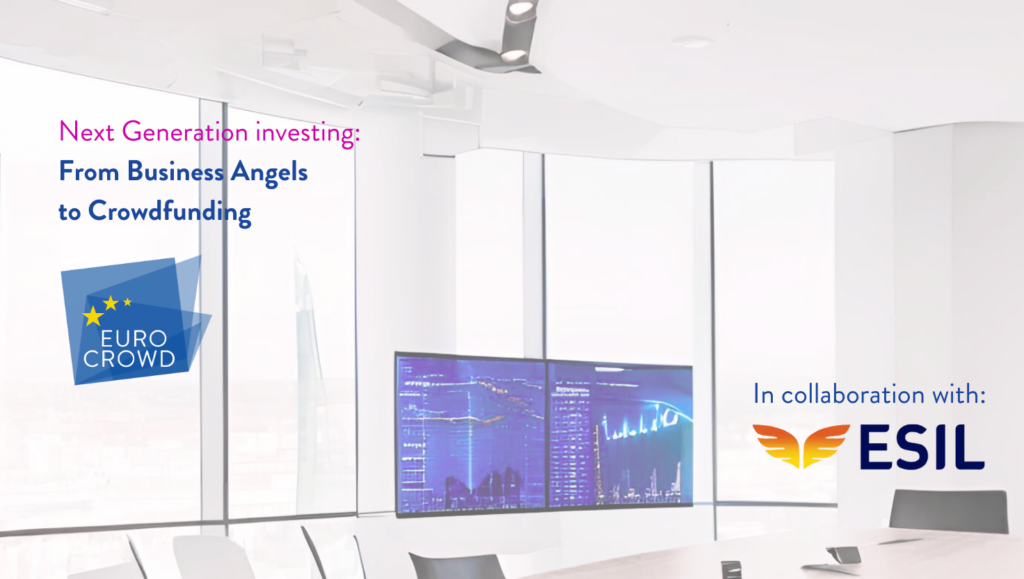Can we fund Deep Tech through Crowdfunding and Business Angels? Deep tech—technologies rooted in advanced scientific and engineering innovation—represents a critical pillar for Europe’s future prosperity. Whether solving grand challenges in climate, health, energy, or security, these ventures build the foundations of entirely new industries and systems.
But deep tech startups face a harsh reality: their long development cycles, complex technologies, and high capital needs create barriers to traditional early-stage funding.
To succeed, these ventures need smarter, more collaborative funding models—and this is where crowdfunding and business angels can play transformative roles. To unlock radical innovation, we need to unlock access to capital first—supported by initiatives like ESIL (Early Stage Investing Launchpad) and further empowered through synergies with regulated crowdfunding under ECSPR.
The Funding Gap in Deep Tech
Deep tech ventures face a distinct set of structural challenges:
- Long development timelines, which deter short-term oriented investors.
- High technical complexity, demanding expert knowledge and due diligence.
- Gaps in early-stage capital, especially between proof-of-concept and commercial traction.
- Limited commercial support networks, particularly outside major innovation clusters.
While venture capital plays a critical role in scaling successful deep tech startups, its model is often misaligned with the early needs of such ventures. VC funds typically operate under short investment horizons and seek exponential returns. To manage risk, they adopt a portfolio strategy—out of 10 to 12 investments, only 3 to 5 are expected to receive follow-on funding, and perhaps one or two may become standout successes. The remainder are often left behind, regardless of their potential or progress.
This leaves many high-potential innovations stranded in the so-called “Valley of Death”—the perilous gap between early-stage development and commercial viability.
Yet VCs are not the only actors in the funding ecosystem. To succeed, deep tech startups must pursue a long-term, diversified funding strategy—one that builds a sustainable financing pathway over time, with fallback options and strategic milestones that reduce risk and increase resilience.
This is where Business Angels and Crowdfunding come into play. Each brings unique strengths—and limitations—that, when strategically combined, can form a powerful support system to guide deep tech ventures through early funding hurdles and into long-term growth.
Tackling Deep Tech: Business Angels and Crowdfunding
When looking at Business Angels and Crowdfunding in the context of Deep Tech Investing, we can immidiately identify strengths and shortcomings. In fact, at first sight neither seems well placed to finance the often significant capital requirements stretching over a comparatively long time period. But then, neither is venture capital. For lack of alternatives, or maybe better to exploit obvious opportunities, lets have a look what Business Angels and Crowdfunding can – in theory and in praxis – deliver.
Business Angels: Strategic but Selective
Business Angels play a pivotal role in early-stage deep tech funding by offering not only capital but also strategic insight, industry expertise, and valuable networks. Their involvement often goes far beyond money, helping founders refine their business model, identify market opportunities, and navigate regulatory complexities. For deep tech startups, which frequently lack commercial experience, this mentorship can be critical.
However, angel investors tend to be selective in their investment choices. Deep Tech ventures cover technical complexity and long development timelines, many angels are careful to invest unless they fully understand the technology or have deep conviction in the founding team. More important, business angels are also interested in understanding the societal and economic impact of a startup. An investment proposal must convince on both ends. This selectivity means that startups operating in emerging or highly specialised fields with uncertain exit horizons, must be able to address relevant risks and obstacles well. The high-risk profile and capital intensity of deep tech startups can exceed the typical investment appetite of individual angels – and many other investors.
Crowdfunding: Inclusive but Fragmented
Crowdfunding has democratised access to capital by enabling startups to tap into a broad base of small investors. For deep tech ventures, crowdfunding campaigns can serve multiple purposes beyond funding: validating market demand, raising public awareness, and building early user communities. Platforms also allow for diverse and geographically distributed investors, helping to overcome the limitations of local investor ecosystems.
But crowdfunding is not without its challenges. Many platforms cater to consumer-facing products or easily understood innovations or indeed infrastructure investments—technologies that are relatable to the general public. In contrast, deep tech solutions can be difficult to communicate, often requiring education and context before investors feel confident to engage. Campaigns without tangible products or short-term market potential may struggle to build traction. Additionally, lack of direct mentorship or strategic input from backers means founders often miss the kind of support they might get from experienced investors.
A Dual Strategy: Angels and Crowdfunding
By leveraging the strategic guidance and credibility of Business Angels together with the reach and validation power of crowdfunding, deep tech startups can bridge funding gaps more effectively. A dual strategy mitigates the weaknesses of each individual approach and creates a synergistic funding pathway—one that is inclusive, informed, and geared towards sustainable growth.
To bridge this gap, lets turn our focus to hybrid funding models that combine:
- The strategic guidance and capital of Business Angels, and
- The scalable, regulated, and inclusive access of equity crowdfunding.
Business Angels
BAs are vital for providing hands-on support and high-risk capital in early phases. They bring sector expertise, commercialization know-how, and powerful networks.
Want to know more about becoming a Business Angel?
Crowdfunding
Under the European Crowdfunding Service Providers Regulation (ECSPR), equity crowdfunding has become a regulated, pan-European financing tool for startups raising up to €5 million annually. Capital can be raised from diverse, distributed investors and will additionally create market validation through public interest. In the best case, a crowdfunding round can de-risk investments for co- or follow-on investors (angels, VCs, family offices).
Hybrid Models in Practice
Recent case studies across Europe show a clear pattern:
- Deep tech startups often blend crowdfunding with angel or VC investment.
- Platforms facilitate co-investment by professional and retail investors.
- Successful companies use campaigns to demonstrate demand, validate product-market fit, and secure public co-funding (e.g. Horizon Europe, EIC).
- Many rely on crowdfunding to prove technical feasibility before entering discussions with strategic investors or grant bodies.
- Business Angels are able to add value through long term commitment, mentoring and guidance.
Key Success Factors
- Multidisciplinary teams with research and commercial talent
- Strong IP protection to reduce perceived risk
- Regulatory milestones that unlock further funding
- Clear articulation of societal impact
- Crowdfunding as both a funding and market tool
- Angel investors as strategic advisors and amplifiers
Busness Angels and Crowdfunding platforms frequently collaborate, helping reduce friction in co-investment rounds.
From Fragmentation to Convergence
For Europe to lead in deep tech, we must break silos and foster convergence between funding models:
| Funding Source | Role in Deep Tech |
| Public grants | R&D, non-dilutive early work |
| Crowdfunding (ECSPR) | Proof-of-interest, early capital, visibility |
| Business Angels | Strategic mentoring, commercialization support |
| VCs/Institutions | Scale-up and international growth |
A More Inclusive Deep Tech Ecosystem
Crowdfunding also democratises access—to investors, founders, and regions historically left out of innovation finance. Combined with the expertise of angels and the reach of EU support schemes, it creates a more resilient and diverse ecosystem.
Initiatives like ESIL play a key role by:
- Training next-generation angel investors
- Encouraging co-investment with crowdfunding
- Connecting deep tech founders to a broader range of capital sources
Europe cannot afford to let radical innovation wither due to funding bottlenecks. By embracing a smart mix of business angels and crowdfunding, deep tech startups can access not just capital—but strategic support, community validation, and regulatory credibility.
This isn’t a choice between traditional and alternative finance—it’s about using all the tools together to turn scientific breakthroughs into real-world impact.
This is why the European Innovation Council initiative, ESIL, is working at raising awareness about BA activities and inspiring future investors to believe in deep tech innovations. The platform proposed by ESIL, offer trainings on how to become a BA and on Pan-European investments and organise matchmaking and e-pitch events to accelerate the collaboration between innovators and their future BA.
Want to know more about becoming a Business Angel? Find out more at European ESIL
Additional sources:
- Find out more about Business Angels and Deep Tech investing
- Read about exploring investment opportunities in Biotech and Life Sciences
About European ESIL
ESIL is dedicated to boosting Europe’s innovative ecosystems through the creation of a thriving, connected and diverse angel investment community across all the countries of Europe. The programme is managed by:
 |  |  |


